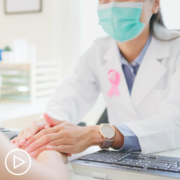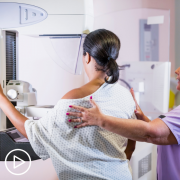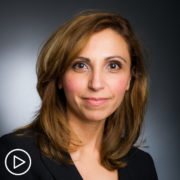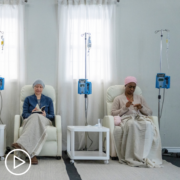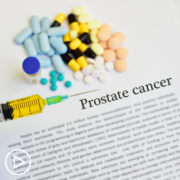Why Should Breast Cancer Patients Feel Empowered to Speak Up About Their Care?
Why Should Breast Cancer Patients Feel Empowered to Speak Up About Their Care? from Patient Empowerment Network on Vimeo.
Why is it important for breast cancer patients to speak up and have a voice in their care? Breast cancer expert Dr. Adrienne Waks shares her perspective encouraging patients to ask questions and understand their care.
Dr. Adrienne Waks is the Associate Director of Clinical Research at Dana-Farber Cancer Institute. To learn more about Dr. Waks click, here.
See More from Thrive Breast Cancer
Related Resources:

|

|

|
Transcript:
Katherine:
Why should patients feel empowered to speak up and ask questions?
Dr. Waks:
Well, I think for all sorts of different reasons. I think in breast cancer there are times when there’s a very clear right answer and right path forward and then a variety of other options that are clearly not recommended, not standard of care inadvisable, dangerous whatever, so there’s plenty of circumstances where that’s the case. But there’s also lots of circumstances, probably the majority of decisions that a patient has to make over the course of her or his breast cancer treatment plan and a variety of circumstances where there’s actually a number of different reasonable paths forward.
Again, I think that’s the physicians or the nurse practitioner, the infusion nurse, whatever healthcare practitioner is helping to guide the patient through that particular decision, it’s our role to help lay out those options. Ultimately, we will always look to the patient for the most important final decision, so in order to make that decision, a patient needs to ask questions and help us understand where is she or he coming from, and what are their values and what are their competing interests, competing priorities outside of their breast cancer diagnosis, what is the most important outcome, a thing they want to maximize most, a thing they don’t really care about.
We’ll never be able to bring that perspective to the table. We always look to the patient to do that.
And so, they’re only get there by asking questions. Obviously, we’re going to try our best to anticipate all of the questions and lay out the options as comprehensively as we can, but there will always be things we can’t anticipate and things that are important to the patient that we just simply could never know about. So, we understand, appreciate, expect, and hope that a patient will ask questions and even more so that their accompanying family member or friend will do the same.

